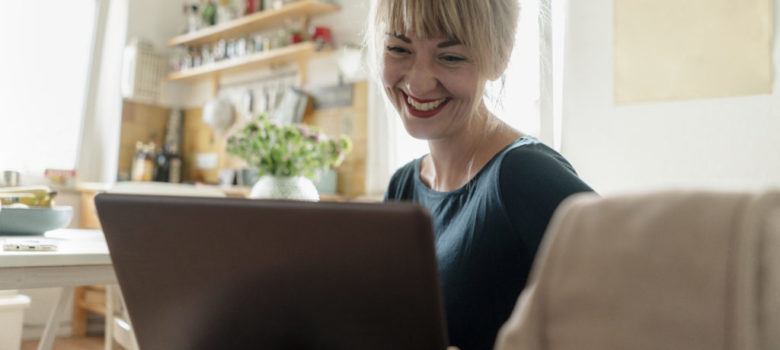

How Friends Relieve Stress and Help Us Cope
by Guest Author
Friends are great, but most of us don’t realize exactly how great: Here’s how close relationships relieve stress and keep you healthy.
We don’t have to tell you, but having friends is pretty great. Before social distancing, you could share a dessert with them or go on a hike. But in today’s new normal, being socially active—even from afar—has a host of mental and physical benefits.
“People really underestimate how toxic prolonged loneliness can be and unfortunately many people are in that position and are very isolated right now due to being quarantined during the coronavirus pandemic,” says David A. Merrill, MD, PhD, psychiatrist at Providence Saint John’s Health Center, director of the Brain Health Center at the Pacific Neuroscience Institute in Santa Monica, California, and professor emeritus of psychiatry at UC Berkeley.
Feeling lonely on a regular basis can shorten your lifespan by 26 percent, making it deadlier than obesity or alcoholism, according to a 2018 study published in Perspectives on Psychological Science.
“Maintaining close relationships is going to be one of the best things you can do to cope with this stressful situation,” says Steven M. Sultanoff, PhD, clinical psychologist and professor of psychology at Pepperdine University.
Here are some tips from the doctors for having and being a good friend while in quarantine:
Laugh together
Text your friends some coronavirus memes or send them a funny video. “Humor really is the best medicine, it helps us physically, emotionally, and cognitively,” Sultanoff says. “But the effects get even better when you share it.” Laughter releases feel-good chemicals in the brains called endorphins. A 2017 study in the Journal of Neuroscience found that the activity in the brain that happens when you laugh with friends “supports the formation, reinforcement, and maintenance of human social bonds.”
Schedule regular check-ins
It can be all too easy to let relationships slide during quarantine so actually schedule times when you’ll check-in with your friends, Dr. Merrill says. “Knowing you have that to look forward to will help both of you.” Try to stay positive, if you can. It will make you both feel better.
Do video calls
Texting is fine for sending a meme or a quick conversation, but make time for video calls, Dr. Merrill says. “Humans are very visual and actually getting to see and hear your friends will be so much more effective for bonding and relieving stress.”

Make friendship a priority
During this time you can’t necessarily meet up at the coffee shop to chat so you may have to work a little harder to find meaningful ways to connect with your friends. But it’s worth it to make them a priority, Dr. Merrill says. If you hit a bump in the road, here’s how to diagnose some common friendship problems.
Open up to your friends
We all need to vent these days! Maintaining a deep friendship requires a level of “psychological intimacy” which makes it feel safer to express your deepest fears, worries, and feelings, Sultanoff says. Plus, being honest with them gives them permission to do the same with you.
Listen
One of the best things you can do to be a good friend right now is to simply listen, Sultanoff says. A lot of people are going through some very traumatic things right now, including relationship problems, job losses, illness, and death of loved ones. Don’t try and solve their problems, just listen, he says.
Join an (online) club
You may not be able to hit up the community center but there are more online groups than ever and these are a great way to find new friends and grow friendships, Dr. Merrill says. “Look for ones related to your favorite hobby, your religion, or your academic interests,” he says. Here are lots of other science-backed ways to battle loneliness.
Offer specific ways to help
Instead of waiting for your friends to tell you what they need, come up with suggestions for how you can help, suggests Sultanoff. Even when you’re stuck inside due to quarantine you can still order food sent to their home if they are feeling sick, make a funny video to celebrate their birthday virtually, or watch a movie online together if they’re lonely.
Say thank you
Friendships need nurturing, patience, and gratitude, Sultanoff says. Let your friends know how grateful you are for them during this difficult time.
Host a virtual happy hour
Missing your regular night out with friends? Zoom, Skype, Google Hangouts, and other chat software were all created to let people talk together online, Dr. Merrill says. It’s not the same as the real deal but it can keep your friend group going until you can meet up again at your favorite hangout.
Tell them you love them
Simply reminding your loved ones that they are oh-so-very loved, even if you can’t see them physically right now, is one of the best things you can do for your friendship, Sultanoff says. Be creative: Send a snail-mail card (make it so you don’t have to go to the store), record your feelings in a video message, or just call them and tell them.
Sources:
David A. Merrill, MD, PhD, psychiatrist at Providence Saint John’s Health Center, director of the Brain Health Center at the Pacific Neuroscience Institute in Santa Monica, California, and professor emeritus of psychiatry at UC Berkeley
Perspectives on Psychological Science: “Loneliness and Social Isolation as Risk Factors for Mortality: A Meta-Analytic Review”
Journal of Neuroscience: “Social Laughter Triggers Endogenous Opioid Release in Humans”
American Journal of Public Health: “A Prospective Study of Social Isolation, Loneliness, and Mortality in Finland”
Steven M. Sultanoff, PhD, clinical psychologist and professor of psychology at Pepperdine University
Original Article on The Healthy, by Charlotte Hilton Andersen
Last updated: May 5th, 2022